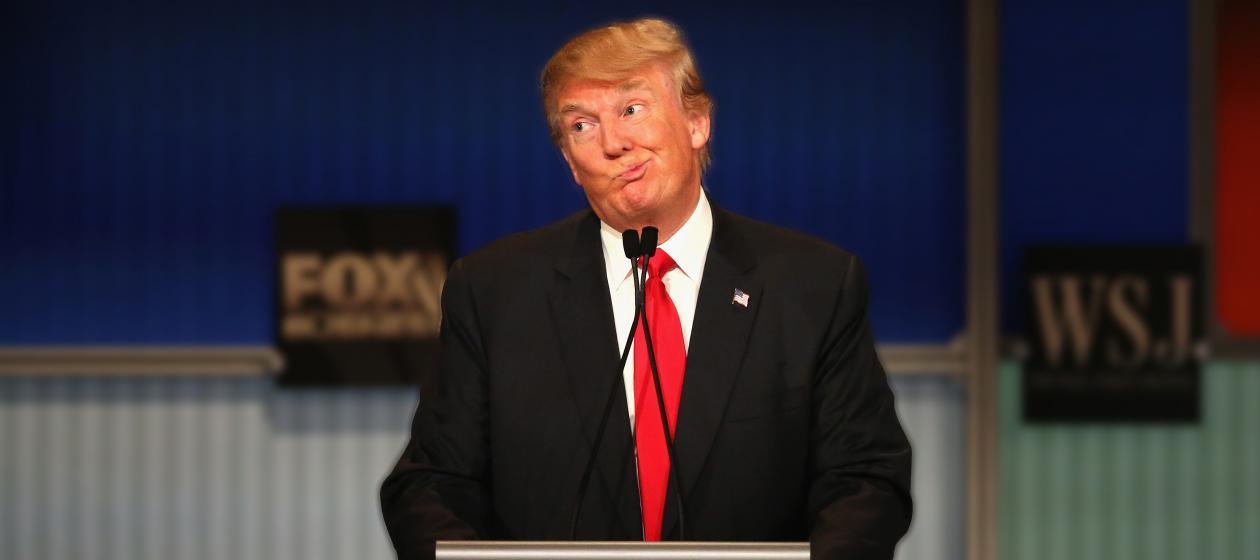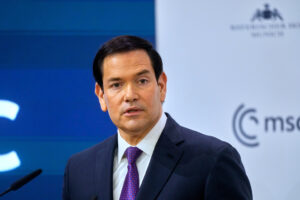Trump’s Misguided Torture Plan

Picture by Scott Olsen | Getty Images

“We can’t do waterboarding, and they can chop off our heads,” Republican presidential candidate Donald Trump said during a CNN interview in March in response to a string of terrorist bombings in Brussels. “We have to change our laws and we have to be able to fight at least on almost equal basis. We have laws that we have to obey in terms of torture. They have no laws whatsoever they have to obey,” he added.
As the race for the White House acquires increasingly surreal tones, one thing is clear: the Republican frontrunner shows little regard for humanitarian law, the group of international laws seeking to limit the effects of armed conflict. Trump’s words on the possibility to rely on torture against Islamic State militants followed similar remarks he made in January, when he threatened to “take out” the families of terrorists, if he were the commander in chief. The illegality of such a policy resulted in an uproar, causing Trump to retract the statement months after the fact. “I will use every legal power that I have to stop these terrorist enemies,” he said. “I do, however, understand that the United States is bound by laws and treaties and I will not order our military or other officials to violate those laws and will seek their advice on such matters.”
Despite Trump’s brief moment of better judgment, the real estate mogul-turned-politician too often contradicts the four Geneva Conventions representing the foundations of humanitarian law. The Conventions require the humane treatment of all persons not actively taking part in hostilities, including civilians and prisoners of war. They also prohibit cruel treatment, torture, the taking of hostages, as well as the degrading treatment of these same individuals. In the War on Terror, the families of suspected terrorists are protected under the category of civilians, as long as they do not join the conflict, and suspected terrorists are considered prisoners of war while being detained by the United States.
Though Trump would like to justify torture of suspected terrorists by changing U.S. law, the solution is not as easy as it may seem, given that the United States has ratified the Geneva Conventions. In theory, the United States could opt out of the Conventions, but the Constitution remains silent on how Congress might go about terminating treaties. The Conventions also permit states to make reservations upon signature of the treaties, allowing a state to opt out of certain provisions. As such, the United States could alter its obligations under the Geneva Conventions, but this would require Donald Trump to inspire two-thirds of the Senate to agree. This seems unlikely with 44 Democrats in the Senate.
Even though the United States will almost undoubtedly remain obligated to the Geneva Conventions, Trump could choose to ignore the conventions much as former U.S. President George W. Bush did during his tenure in office. During his administration, the CIA used “enhanced interrogation techniques” on suspects held at Guantanamo Bay. While Bush denied accusations of torture, the techniques used by the CIA included sleep deprivation, slapping, and simulated drowning. Though President Obama pledged to close the detention facility at Guantanamo Bay during his first week in office, his administration has made little progress. While the number of detainees has been reduced from 242 to 91, the facility is still in use, in part because of strong resistance in Congress to transferring the detainees to the United States.
Still, Trump should bear in mind that Bush’s violations of humanitarian law proved to be counter-productive in many respects. Not only has the use of torture at the facility failed to yield to significant intelligence, it has also served as a recruitment tool for terrorists. Guantanamo has certainly unsettled our Western allies who unanimously condemn the CIA’s tactics.
Adhering to the Geneva Conventions is in the interests of the United States and, fortunately, Trump cannot change the Geneva Conventions at will. Instead of relying on a change in international law, Trump needs to develop a security policy that does not rely on torture to protect the citizens of the United States. But will he?
Brittany Stubbs is a staff writer for JPI, pursuing her master’s degree in International Relations at NYU. Her areas of research include human rights and international law. She is concurrently an intern with the United Nations Institute for Training and Research. Previously, Brittany was the Executive Assistant with Doctors of the World USA (Médecins du Monde USA) in New York City, a humanitarian organization providing and advocating for health care as a human right. She has also acted as a legislative research intern at Vote Smart in Austin, TX, a non-partisan organization providing free and factual information on candidates and elected officials. She graduated in 2015 from the University of Texas at Austin with a B.A. in both International Relations and Spanish. Her travels include summers in China and Spain with a few places in between. Brittany hails from Dallas but claims Austin, TX.




